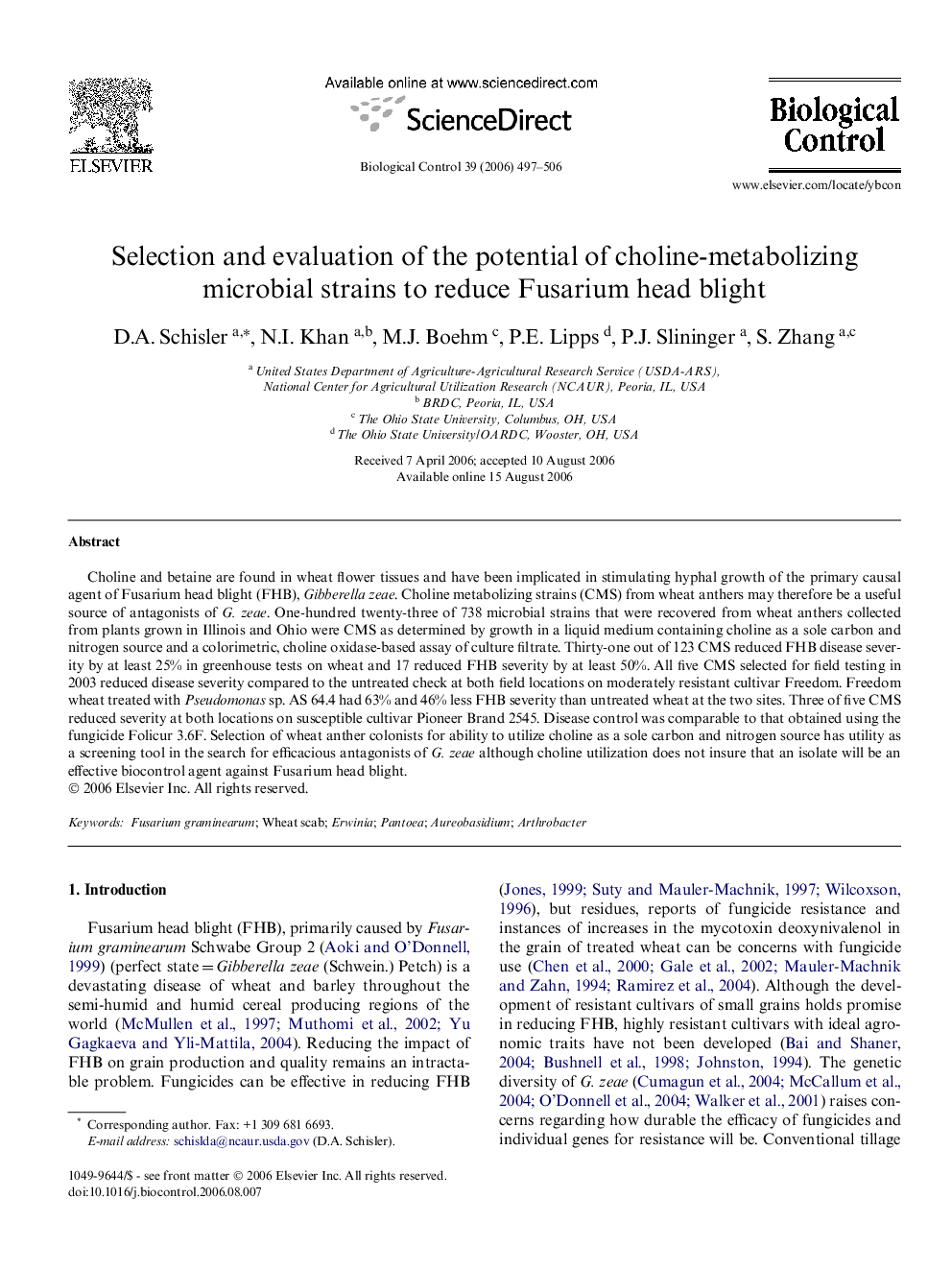| Article ID | Journal | Published Year | Pages | File Type |
|---|---|---|---|---|
| 4505400 | Biological Control | 2006 | 10 Pages |
Choline and betaine are found in wheat flower tissues and have been implicated in stimulating hyphal growth of the primary causal agent of Fusarium head blight (FHB), Gibberella zeae. Choline metabolizing strains (CMS) from wheat anthers may therefore be a useful source of antagonists of G. zeae. One-hundred twenty-three of 738 microbial strains that were recovered from wheat anthers collected from plants grown in Illinois and Ohio were CMS as determined by growth in a liquid medium containing choline as a sole carbon and nitrogen source and a colorimetric, choline oxidase-based assay of culture filtrate. Thirty-one out of 123 CMS reduced FHB disease severity by at least 25% in greenhouse tests on wheat and 17 reduced FHB severity by at least 50%. All five CMS selected for field testing in 2003 reduced disease severity compared to the untreated check at both field locations on moderately resistant cultivar Freedom. Freedom wheat treated with Pseudomonas sp. AS 64.4 had 63% and 46% less FHB severity than untreated wheat at the two sites. Three of five CMS reduced severity at both locations on susceptible cultivar Pioneer Brand 2545. Disease control was comparable to that obtained using the fungicide Folicur 3.6F. Selection of wheat anther colonists for ability to utilize choline as a sole carbon and nitrogen source has utility as a screening tool in the search for efficacious antagonists of G. zeae although choline utilization does not insure that an isolate will be an effective biocontrol agent against Fusarium head blight.
